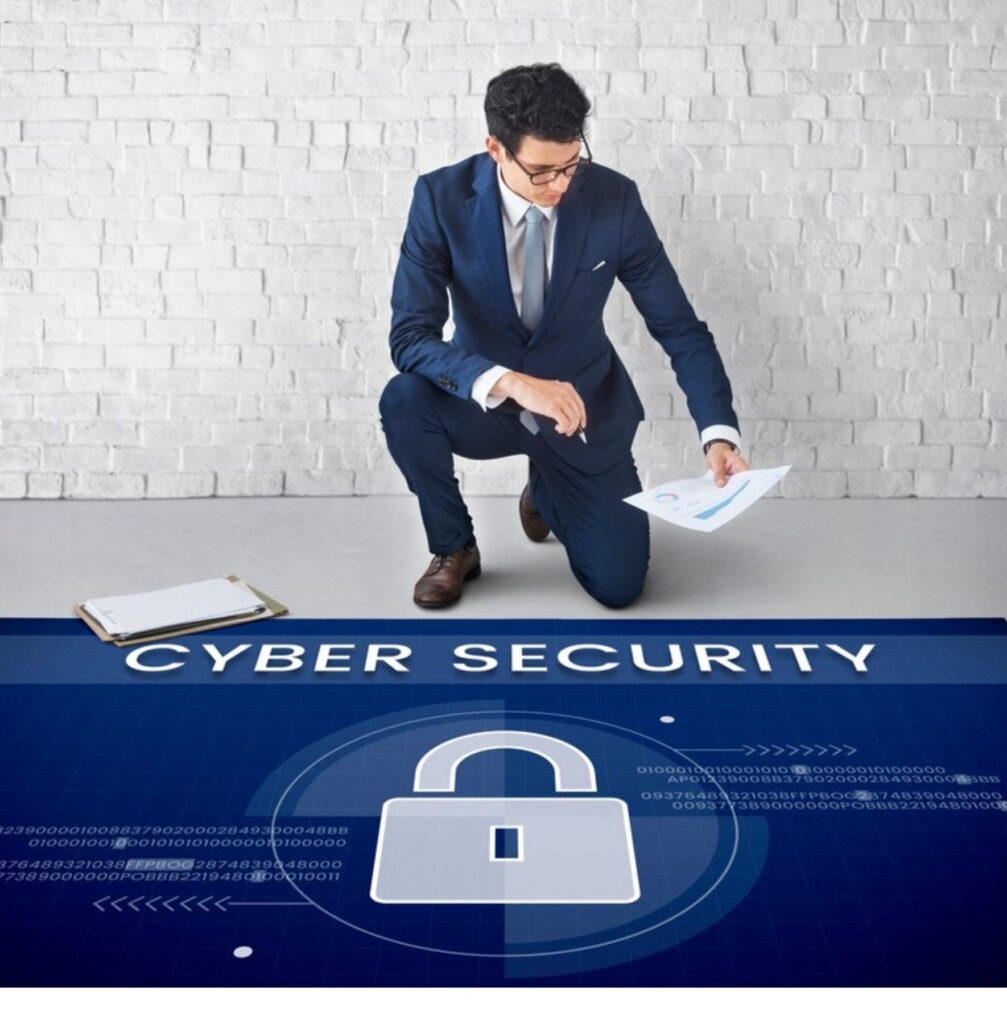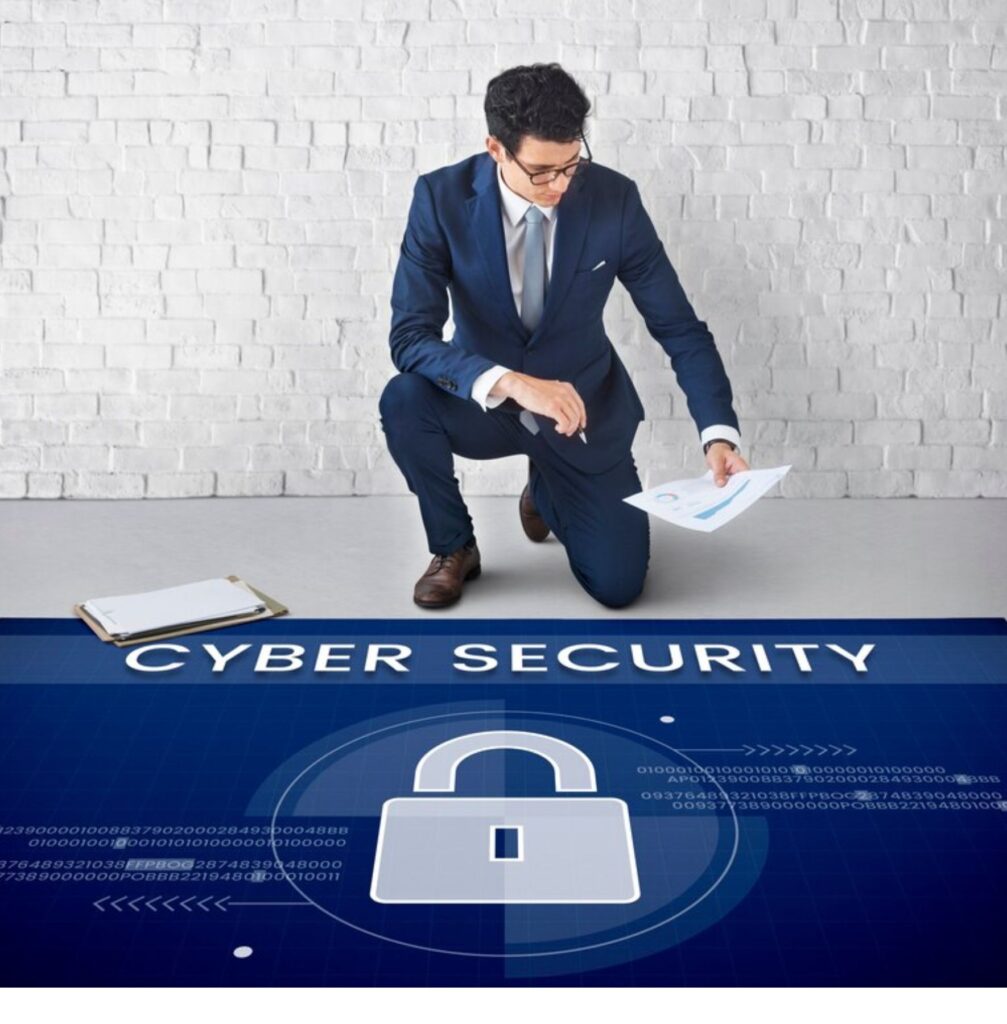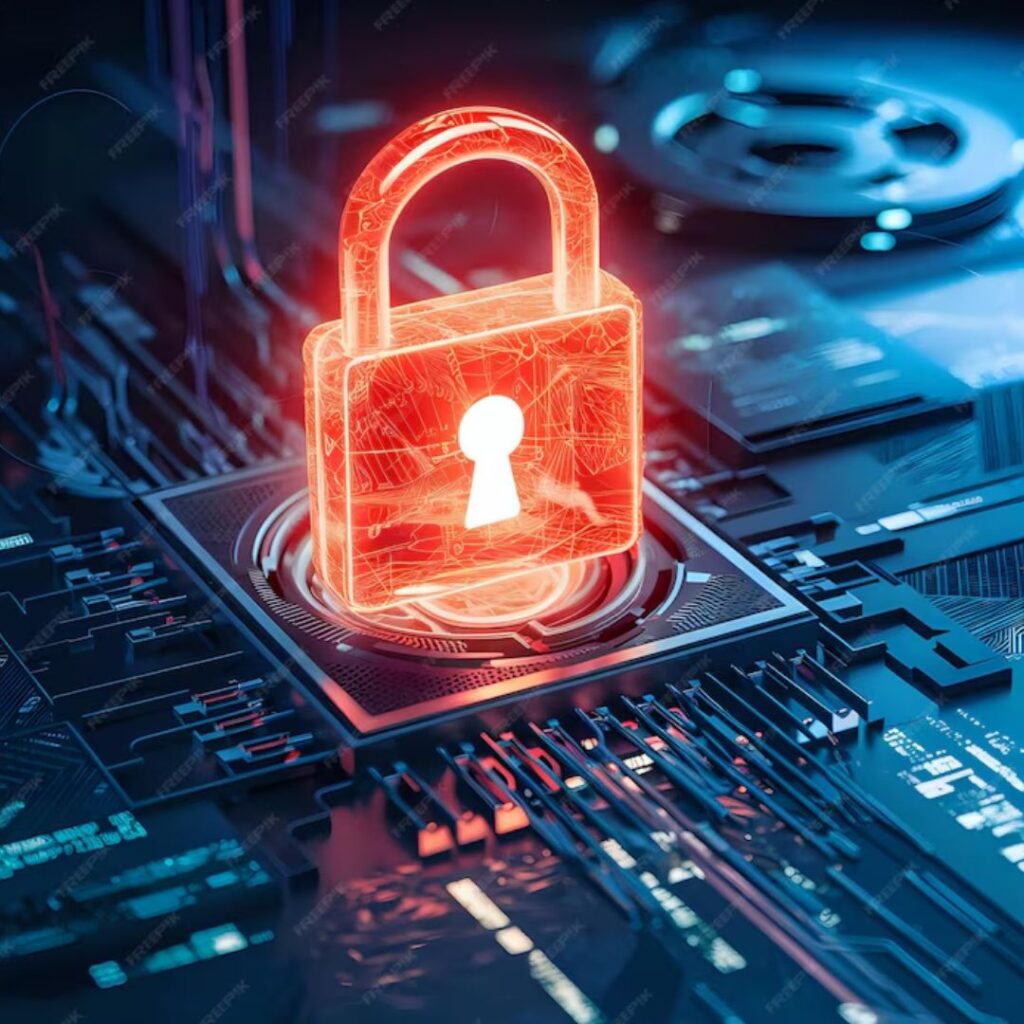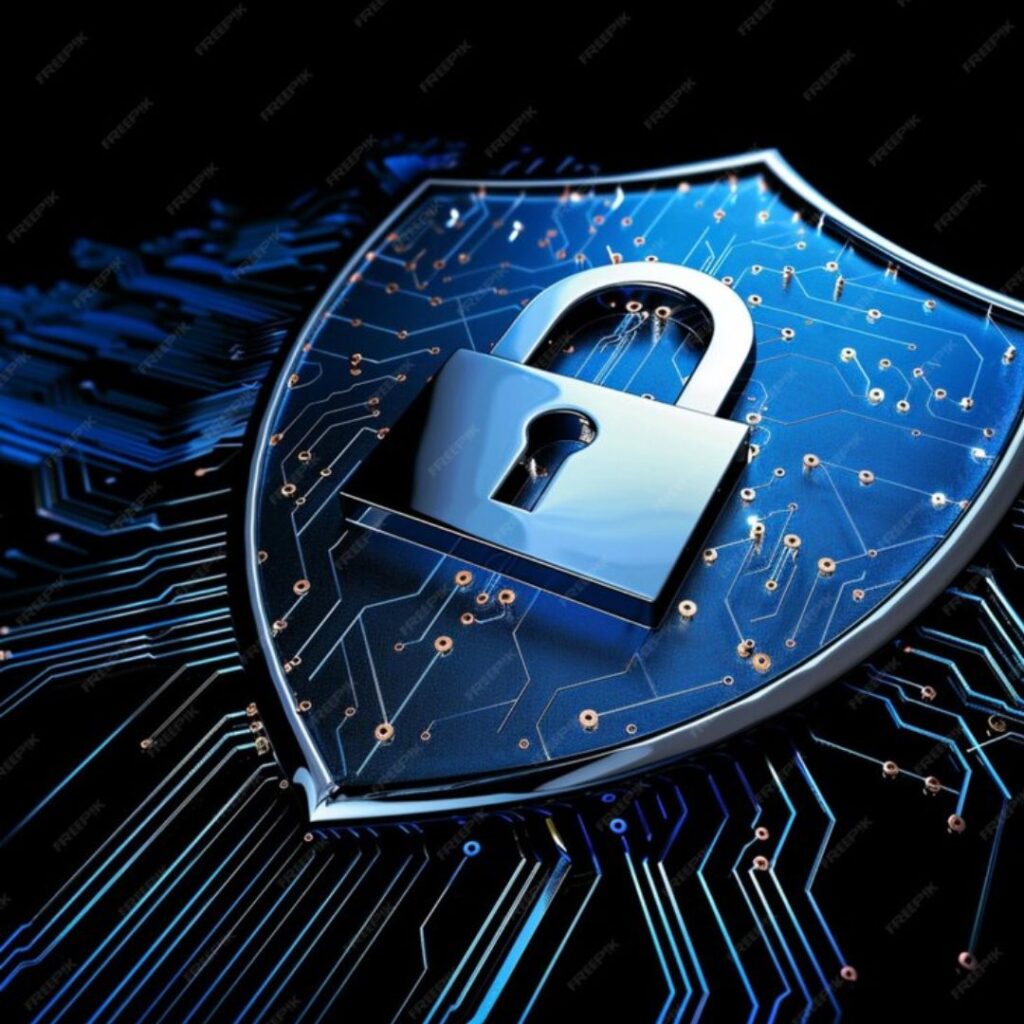Cyber Security Course in Hyderabad
- Classroom & Online Training
- Highest Success Rate in Placements
- Practical based Training
- Expert Instructors


Get certified by our institute in cyber security and get a recognized cyber security certification. You will receive comprehensive cybersecurity certification training and a well-reputed CybersecurityMasters certificate at our institute. The training is conducted by an experienced team of trainers who are widely considered experts in their field. Cybersecurity Masters offers a course completion certificate that can be downloaded in both hard copy and digital formats, with lifetime validity. It can be included on your resume for better job opportunities cyber security course in hyderabad.
Best Cyber Security Training In Hyderabad

Cybersecurity training is essential for individuals and organizations to protect against digital threats. It covers fundamental and advanced topics, including network security, ethical hacking, and cryptography. Training typically involves understanding threat landscapes, learning to implement and manage security controls, and gaining hands-on experience with tools and techniques. Courses often lead to certifications like CEH (Certified Ethical Hacker), CISSP (Certified Information Systems Security Professional), and CompTIA Security+, which validate skills and enhance career prospects. Effective training combines theoretical knowledge with practical exercises, such as simulating attacks and responding to incidents. Providers offer a range of options, including in-person classes, online courses, and workshops, catering to different skill levels from beginners to advanced practitioners. Emphasizing current threats and technologies, cybersecurity training equips professionals to defend against evolving cyber threats and safeguard sensitive information in an increasingly digital world.
Advanced Cyber Security Training for Everyone



Training should also emphasize the importance of strong, unique passwords and the use of multi-factor authentication (MFA) to enhance account security. Password management tools can be introduced to help individuals generate and store complex passwords securely. It’s crucial to explain how to recognize secure websites and the significance of keeping software and systems up to date to protect against vulnerabilities
In addition to these fundamentals, advanced training should address data protection strategies, including encryption and secure data handling practices. Participants should learn about safe browsing habits, the risks associated with public Wi-Fi, and the importance of using virtual private networks (VPNs) to safeguard their data. Educating individuals on the potential dangers of insider threats and how to report suspicious behavior is also vital.
Modules of our Integrated IAM Training
- Understanding IAM’s crucial role in modern cyber security.
- Overview of IAM principles, frameworks, and industry standards.
- Exploring IAM’s significance in safeguarding digital identities and ensuring secure resource access.
- Overview of Okta’s cloud-based Identity-as-a-Service (IDaaS) platform.
- Configuring Okta for Single Sign-On (SSO), Multi-factor Authentication (MFA), and Adaptive Access Control.
- Integrating Okta with applications, directories, and identity providers
- rovisioning and de-provisioning workflows in okta.
- Automating identity lifecycle processes and access requests.
- Role-based access control (RBAC) and entitlement management with okta.
- Access certification and attestation processes in Okta.
- Managing access risks and ensuring compliance with regulatory requirements.
- Continuous access monitoring and remediation strategies.
- Configuring SSO for cloud and on-premises applications using Okta.
- Implementing Multi-factor Authentication (MFA) for enhanced security.
- Adaptive Authentication and contextual access policies in Okta
- Integrating Okta for seamless IAM workflows.
- Synchronizing user identities and access entitlements between systems.
- Leveraging APIs and connectors for data exchange and orchestration.
- Implementing IAM best practices for scalability, performance, and resilience.
- Advanced configuration and customization options in Okta.
- Addressing common IAM challenges and troubleshooting techniques.
- Practical exercises and simulations to reinforce learning objectives.
- Building IAM solutions for typical enterprise use cases.
- Solving IAM challenges through teamwork and collaboration.
- Preparation strategies for IAM certifications such as Okta Certified Professional and Okta Certified Administrator.
- Guidance on career paths and job opportunities in IAM roles.
- Networking opportunities and community engagement for IAM professionals.

Learn to identify, evaluate, and prioritize risks to information systems. Understand how to conduct risk assessments and develop strategies to mitigate potential threats.
Gain expertise in protecting network infrastructure through techniques like firewall management, intrusion detection systems (IDS), and secure network architecture. Learn to monitor and defend against unauthorized access and network breaches
Develop the ability to analyze and interpret threat data, recognize attack patterns, and anticipate potential cyber threats. This includes understanding threat actors, tactics, techniques, and procedures (TTPs)
Acquire skills to effectively respond to and manage security incidents. This includes creating incident response plans, conducting forensic investigations, and implementing recovery processes to minimize damage and restore normal operations
Learn the fundamentals of encryption and decryption techniques used to protect data confidentiality and integrity. Understand key management, public and private key infrastructure (PKI), and secure communication protocols
Gain hands-on experience in ethical hacking to identify and exploit vulnerabilities from an attacker’s perspective. Develop skills in penetration testing to proactively find and fix security weaknesses before malicious actors can exploit them
Understand how to create and enforce security policies that align with industry standards and regulatory requirements. Learn about frameworks like GDPR, HIPAA, and NIST to ensure compliance and protect sensitive information
Develop strategies to educate and train employees on cybersecurity best practices, recognizing phishing attempts, and fostering a security-conscious culture within the organization
Our Advantages
Enhanced Skill Set
For Individuals: Training helps develop a deep understanding of cybersecurity principles, tools, and techniques. It equips professionals with practical skills in areas like threat detection, incident response, and vulnerability assessment, making them more effective in their roles.
For Organizations: A skilled workforce is better equipped to handle and mitigate cybersecurity threats, reducing the risk of security breaches and enhancing overall resilience.
Improved Risk Management
For Individuals: Training provides knowledge on best practices and strategies to identify and address security risks. This proactive approach can prevent security incidents and reduce potential damage.
For Organizations: Well-trained employees can implement and maintain robust security policies and controls, helping to manage and mitigate risks more effectively.


Compliance and Regulatory Adherence
For Individuals: Training often covers compliance with industry standards and regulations (e.g., GDPR, HIPAA). This knowledge is crucial for ensuring that practices align with legal and regulatory requirements.
For Organizations: Compliance with cybersecurity regulations helps avoid legal penalties and reputational damage. Trained staff can ensure that security practices meet necessary standards and regulations.
Increased Incident Response Efficiency
For Individuals: Training in incident response enables professionals to handle security breaches efficiently and effectively, minimizing potential damage and downtime.
For Organizations: Quick and effective response to incidents helps in mitigating the impact of security breaches and recovering operations with minimal disruption.
Certified Cyber Security Course Syllabus for 2024


- Basics of cybersecurity
- Importance and scope of cybersecurity
- Key cybersecurity concepts (CIA triad: Confidentiality, Integrity, Availability)
- Cybersecurity frameworks and standards
- Risk management and assessment
- Security policies and procedures
- Compliance and legal aspects (e.g., GDPR, HIPAA)
- Security governance and management
- Basics of network architecture and protocols
- Network security fundamentals (firewalls, IDS/IPS)
- Network segmentation and VLANs
- VPNs and secure remote access
- Introduction to cryptographic principles
- Encryption algorithms and techniques (symmetric, asymmetric)
- Key management and digital signatures
- Cryptographic protocols (SSL/TLS, HTTPS)
- Types of cyber threats (malware, ransomware, phishing)
- Vulnerability assessment and management
- Common attack vectors and methodologies
- Threat intelligence and analysis
- Overview of ethical hacking principles
- Penetration testing methodologies (planning, reconnaissance, scanning)
- Tools and techniques for penetration testing (e.g., Metasploit, Nmap)
- Vulnerability exploitation and reporting
- Incident response planning and procedures
- Detecting and analyzing security incidents
- Containment, eradication, and recovery strategies
- Post-incident analysis and reporting
- Security Operations Centers (SOCs) and their roles
- Log management and analysis
- SIEM (Security Information and Event Management) systems
- Continuous monitoring and alerting
- Fundamentals of cloud computing and security
- Cloud service models (IaaS, PaaS, SaaS) and their security implications
- Cloud security best practices and frameworks
- Securing cloud infrastructures and applications
- Secure software development lifecycle (SDLC)
- Common application vulnerabilities (OWASP Top 10)
- Code reviews and security testing
- Application security tools and practices
- Endpoint protection strategies and technologies
- Anti-malware solutions and their configuration
- Device management and data protection
- Mobile device security
- Principles of IAM and access control
- Authentication methods and technologies (multi-factor authentication)
- Role-based access control (RBAC) and least privilege
- Identity management tools and practices
- Overview of new and emerging cybersecurity technologies
- Artificial intelligence and machine learning in cybersecurity
- Blockchain and its security implications
- Internet of Things (IoT) security challenges
- Review of key concepts and topics
- Practice exams and sample questions
- Test-taking strategies and tips
- Practical cybersecurity project or case study
- Application of course concepts to real-world scenarios
- Project presentation and evaluation
- Comprehensive review of all topics covered
- Final exam or assessment to evaluate knowledge and skills
Highlights
Our cybersecurity training highlights include immersive hands-on labs that simulate real-world scenarios, expert instructors with industry-leading experience, and a curriculum that is continually updated to address the latest threats and compliance standards. We emphasize practical skills in areas such as threat analysis, incident response, and ethical hacking, ensuring participants gain actionable knowledge. Our personalized approach tailors training to your organization’s specific needs, enhancing overall security posture. Additionally, we provide ongoing support and resources to help teams apply their learning effectively, making our training a comprehensive solution for building robust cybersecurity defenses.
Our cybersecurity training highlights feature hands-on labs that simulate real-world threats, expert instructors with extensive industry experience, and a dynamic curriculum aligned with the latest cybersecurity trends and compliance standards. We focus on practical skills in threat detection, incident response, and ethical hacking, offering personalized training tailored to your organization’s needs. Our program includes continuous support and resources to reinforce learning and ensure effective application. By combining cutting-edge content with actionable insights, we empower your team to build a resilient security posture and stay ahead of evolving cyber threats.
Our cybersecurity training highlights include interactive hands-on labs that replicate real-world scenarios, expert-led instruction with up-to-date industry insights, and a curriculum designed to address the latest cyber threats and compliance requirements. We offer practical skills in areas such as threat detection, incident response, and ethical hacking, with a focus on real-world application. Personalized training modules cater to your organization’s specific needs, while ongoing support ensures effective implementation of learned skills. Our comprehensive approach equips your team to build robust defenses and stay ahead of evolving security challenges, enhancing your overall cybersecurity posture.
Cyber Security Cerfications



CompTIA Security+: This entry-level certification covers fundamental cybersecurity concepts, including network security, threats and vulnerabilities, access control, and cryptography. It’s ideal for those new to the field, providing a solid foundation for further specialization.
Certified Information Systems Security Professional (CISSP): Offered by (ISC)², the CISSP is a globally recognized certification that targets experienced professionals. It covers a broad range of security topics, such as security and risk management, asset security, and security architecture.
Certified Ethical Hacker (CEH): Provided by EC-Council, the CEH focuses on the techniques used by hackers to exploit systems. It trains professionals in ethical hacking methodologies, tools, and practices to identify and fix security vulnerabilities.
Certified Information Security Manager (CISM): Offered by ISACA, CISM is designed for management and focuses on information risk management, governance, and incident response. It is particularly suited for those in managerial roles or aiming for such positions.
Certified Information Systems Auditor (CISA): Also from ISACA, CISA emphasizes auditing, control, and assurance. It’s tailored for professionals who audit, control, monitor, and assess information systems and is highly valued in the auditing and compliance sectors.
Certified Cloud Security Professional (CCSP): Another certification from (ISC)², the CCSP specializes in cloud security. It covers topics like cloud architecture, governance, risk management, and compliance, addressing the growing need for securing cloud environments.

Register for a Digital Marketing Demo
Our Happy Students
I was looking for a good Digital Marketing Training in Hyderabad. I searched the internet and came across Shirisha’s website, read about her experience and decided to give her a call. She is very helpful and gave me valuable insights on how to optimize my online presence with social media sites like Facebook, Twitter etc. I have been learning from Shirisha ever since then, She has great knowledge of digital marketing strategies which will help you establish your brand image among your customers effectively.
I have been looking for a quality digital marketing training in Hyderabad and I came across Shirisha. It was the first time that I had heard about this company, but when my friend told me how good they were, I decided to give them a try. They really did an amazing job! The instructor (Shirisha) is very knowledgeable and experienced in her field of work. She also made sure that we got all the information needed to understand what we are learning from her. She answered all our questions patiently so as not to make us feel frustrated at any point during the course.
Shirisha has been a great help to me. She is an amazing trainer who knows the stuff and teaches you how to learn digital marketing in the best way possible. I highly recommend Shirisha for anyone looking to learn about Digital Marketing as she will guide you along the way with ease and make sure that you get what it takes out of each session. Shirisha is an expert Digital Marketing Trainer. I got the chance to learn from her, it was a great experience for me and I am sure everyone will love this course too. Shirisha teaches you how to become a digital marketing guru in no time!
Scope of Cyber Security in Hyderabad
In Hyderabad, the scope of cybersecurity is robust due to its thriving IT and tech industry, which drives high demand for skilled professionals. Career opportunities abound in roles like security analysts, ethical hackers, and network security experts. The city’s growing startup ecosystem and multinational presence further fuel this demand. Educational institutions and training centers offer specialized cybersecurity courses and certifications. Frequent industry events and conferences provide valuable networking and professional development opportunities.
Digital Marketing skills are in great demand and there are plenty of job opportunities available in Hyderabad for freshers. The right training and the right guidance will help you launch your career in digital marketing sooner and will give you the right beginning.
A fresher in a digital marketing role in Hyderabad can earn up to Rs 25,000 per month and grow significantly to draw much bigger salaries as they gain experience. If you are a college fresher and looking to make a career in digital marketing, you are on the right path.
If you are looking for fast career growth and job satisfaction, you should become a digital marketer. There are massive opportunities in Hyderabad for freshers.
Many recent surveys suggest that the demand for digital marketing professionals in India will rise by 58% by 2025. And it’s time you take advantage. Thousands of freshers have been trained at Web Training Academy and started their careers as digital marketers in Hyderabad and elsewhere. Many of them are making it big in the industry.
Freelancing is on the rise. Freelance digital marketers offer freelancing services to clients from different locations. There are many online platforms where you can register as a freelancer and offer your services to clients looking for services.
Digital marketing freelancers usually work from home and help businesses with various digital marketing related tasks. The increasing demand for digital marketing skills makes freelance digital marketing a great career option. As a freelancer, you can be your own boss and set your own working hours.
If you ever decide to stop freelancing, you can use your skills and experience to start your digital marketing agency or get into a high-paying job as a digital marketer.
As a freelance marketing professional, you have to wear many hats. You need to master different channels, processes and skills to offer a range of digital marketing services to your clients. With our comprehensive digital marketing training, you will master all the essential channels, processes and skills and grow as a successful freelance digital marketer.
The changing landscape of jobs, recurrent layoffs, and a scarcity of jobs have made it essential for working professionals to up-skill or cross-skill, or possibly explore a different career stream.
With businesses from almost every sector integrating digital marketing to promote their brands, products and services, working professionals from sales, marketing as well as other departments now need to re-skill themselves with digital marketing techniques. It will help them move further up on the success ladder.
Benefits of Learning Digital Marketing:
Better job prospects
Adds value to resume
Higher salary
Makes your career versatile
If you are a working professional looking to learn digital marketing in Hyderabad, we will be happy to equip you with all the necessary skills you will need to upgrade your career.
Every business owner should learn digital marketing. Customers have become tech-savvy and are turning to digital and online platforms to shop, transact and connect.
If your business isn’t online, you may not be able to survive for long. And having a website, blog or Facebook account isn’t going to be enough. The question is how will you use these and other digital channels to your advantage?
If you are a business owner planning to learn digital marketing to grow your business, we can help you. Register for a digital marketing course at Web Training Academy and learn about new ways to reach a larger audience, convert them into customers and grow your business.
Some of your competitors might be ahead of you on this path. Win over them with your better digital marketing strategies. Our digital marketing course is the only course you need to grow your business online. Don’t wait for the right time, get started today and outrank your competitors with advanced digital strategies.
Career opportunities in cybersecurity are vast and continually expanding due to the increasing sophistication of cyber threats and the critical need for advanced digital protection. Professionals in this field can work as security analysts, who monitor and address security incidents, analyze potential threats, and implement measures to protect information systems. Penetration testers, also known as ethical hackers, simulate cyberattacks to find and fix vulnerabilities before malicious actors can exploit them. Security consultants provide expert advice to businesses on best practices, conduct risk assessments, and design strategies to safeguard against potential breaches. Incident responders play a crucial role in managing and investigating security breaches, minimizing damage, recovering data, and improving response strategies. Network security engineers focus on designing and maintaining secure network infrastructures, including the deployment of firewalls and intrusion detection systems. Cybersecurity architects develop and oversee comprehensive security frameworks and strategies to protect organizational assets. Additionally, security researchers explore emerging threats and vulnerabilities, contributing to the development of new security technologies and solutions. These roles span various sectors such as finance, healthcare, government, and technology, offering robust career prospects driven by the increasing demand for cybersecurity expertise in a digitally transforming world.

